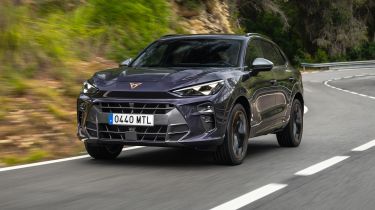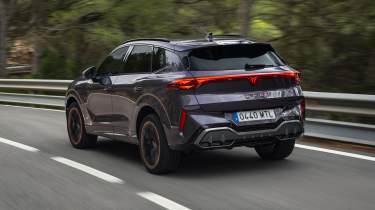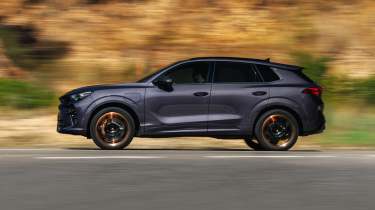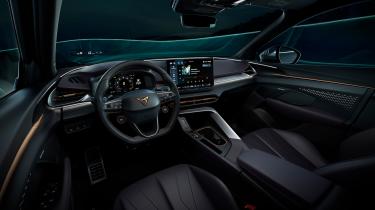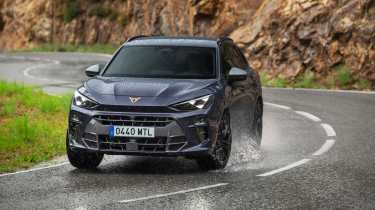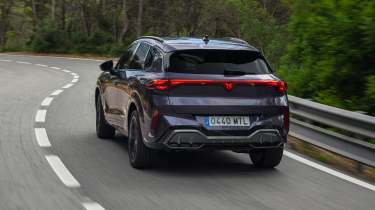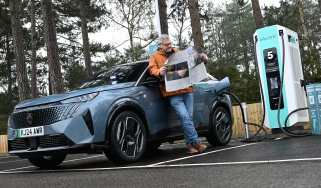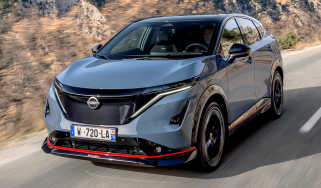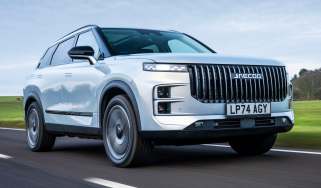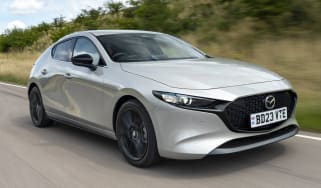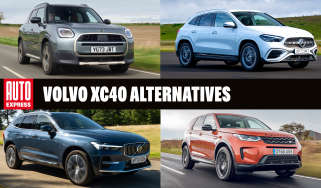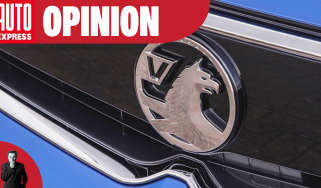Cupra Terramar review
Distinctive, well built and capable SUV is the most rounded Cupra in the range, and makes for an excellent family hauler
Is the Cupra Terramar a good car?
Cupra’s Terramar is a family-focused SUV that comes with a healthy dose of personality. For the class, it’s an entertaining drive that has an impressive slickness to its powertrains and chassis, without being too overtly sporty. It’s not ground-breaking in any one area, but has very few weaknesses. Just be aware that the pure petrol version can be rather thirsty.
| Key specs | |
| Fuel type | Petrol, plug-in hybrid |
| Body style | Five-seat SUV |
| Powertrain(s) | 2.0-litre four-cylinder, seven-speed dual-clutch automatic,all-wheel drive 1.5-litre four-cylinder, seven-speed dual-clutch plus electric-motor, 19.4kWh battery pack, front-wheel drive |
| Safety | TBC |
| Warranty | 5yrs/90,000 miles |
How much does the Cupra Terramar cost?
In the relentless pursuit of sales, family-friendly SUVs have become essential to every manufacturer’s line-up. So it’s no surprise to see that as part of Cupra’s transformation from niche performance sub-brand to showroom leader, the Terramar has arrived, and with high expectations.
The striking family-sized SUV will be offered with an array of powertrains, and a wide spread of trim options that stretch the price band from £37,290 to £51,735. This is a lot of money for a mid-size SUV, but then there’s a lot on offer, as despite being a strict five-seater, this is a bigger car than the existing Cupra Ateca – and more sophisticated, too.
When the Terramar goes on sale at the end of 2024, it’ll launch with an entry-level 1.5-litre mild-hybrid powertrain, plus high-powered plug-in and pure petrol options, with a lower powered plug-in and pure petrol to join the line-up from early 2025.
More reviews
In-depth reviews
In an attempt to keeping the range structure simple, Cupra will offer a ‘low’ and ‘high’ spec trim for each of the low and high-powered powertrain options, plus a couple of limited-run variants including a VZ Launch Edition, and America’s Cup model for the PHEV and top-spec pure petrol, respectively.
Engines, performance & drive
Cupra will launch with a choice of three engine types: mild-hybrid, pure petrol and plug-in hybrid. The range opens with the eTSI 1.5-litre four-cylinder petrol engine with a mild-hybrid module. It’s rated at 148bhp, and is a powertrain that’s found across the Volkswagen Group. This is connected exclusively to a seven-speed dual-clutch gearbox and front-wheel drive.
The mild-hybrid system is made up from a starter-generator and small lithium-ion battery pack that runs on a 48V electrical system. As well as injecting small amounts of torque to the drivetrain at low revs, it also facilitates engine-off coasting.
Next up are a pair of pure petrol models that feature VW’s trusty turbocharged 2.0-litre four-cylinder engine, which has recently been updated to comply with the latest emissions regulations. These will be available in 200bhp and 262bhp forms – the latter borrowed directly from the latest Volkswagen Golf GTI. Both will come as standard with a seven-speed dual-clutch and all-wheel drive.
Two plug-in e-Hybrid models will round out the range, with similar 200bhp and 268bhp combined power figures. These feature a 1.5-litre four-cylinder engine paired to an electric motor and 19.4kWh battery pack, powering the front wheels only. Cupra is quoting an all-electric range of up to 70 miles from a charge, which can be topped up at speeds of up to 11kW (AC) and 50kW (DC).
We’ve driven the 268bhp plug-in hybrid variant, and straight away one can identify Cupra’s continued progress with its PHEV technology. Fundamentally, the e-motor’s range means that a majority of driving can be done on battery power alone. Not only is the e-motor quiet and smooth, it’s also now just about powerful enough to drive the car comfortably at high speeds.
Ask for full power and the engine takes a short while to wake up and get involved, but the 1.5-litre four-cylinder is inherently very refined, and only makes a distant grumble in normal driving. Flip into Cupra mode and the petrol engine will take on a particularly aggressive engine note that sits somewhere between a warbling V-twin and a V8, but this can be turned right down through the Personal drive mode. The middling Performance engine noise is well judged.
The flipside is that with the excellent electric range, a big battery is required to provide it. This makes the PHEV feel a little more stodgy to drive than the pure petrol models, as the car’s overall handling suffers from the additional weight.
Regardless of driver mode, however, the ride is very well damped, even in the firmer settings. Standard 20-inch wheels in high-spec models don’t seem to have a negative effect, and there is some added precision courtesy of low-profile tyres.
The brakes have good feel for a plug-in hybrid, but the need to incorporate both regenerative and friction braking into the one pedal still makes things feel a little less direct than you might hope for. However, on VZ models fitted with the enlarged Akebono brakes, there’s plenty of stopping power, and a higher level of resilience after repeating braking manoeuvres.
For maximum interaction, the 272bhp pure petrol model is more agile; not only can it turn in harder, and with more precision, but there’s enough power to leave the car balanced coming out from a corner. It’s slightly more well rounded to drive than the smaller Ateca and Formentor, but then this is a more family-oriented model – plus there’s a good chance an even more potent version will be on its way.
What’s certain, though, is that compared to most of its key competitors, the Terramar offers superior engagement, and this makes it more enjoyable to drive than almost anything else in the class.
| Model | Power | 0-62mph | Top speed |
| Terramar TSI | 262bhp | 5.9 | 151 |
| Terramar e-Hybrid | 268bhp | 7.3 | 134 |
MPG, CO2 & running costs
Cupra’s determination to offer a high-powered petrol powertrain option is representative of how important the brand’s DNA still is across every model.
The flipside of this is that, alongside most rivals, buyers must accept a comparatively high on-paper MPG and CO2 rating. As such, the top-spec Terramar has a combined fuel consumption rating of 32mpg and emits 191g/km – among the highest in the class, and responsible for dragging the range average down. On test, we achieved a fuel economy figure that was well into the high 30s, but it took a very light right foot.
By comparison, the PHEV models have a faintly ridiculous claimed figure of between 706-564mpg, this is due to the long 70-mile claimed EV range. Cupra also states a more useful ‘charge-sustaining’ figure of 46-48mpg, which is derived from when the charge-hold function is selected, or the battery completely empty. The real-world figure, depending on your driving habits and how often you recharge, will sit somewhere between these figures.
| Model | MPG | C02 | Insurance group |
| Terramar TSI | 32mpg | 191 | TBC |
| Terramar e-Hybrid | 706-564mpg | 9-12 | TBC |
Design, interior & technology
It’s Cupra’s desire to design more driver focused models which shapes the interior design, and this is obvious from inside the interesting, highly-stylised cabin. This starts with the basic dashboard layout, which angles the main air vents and infotainment interface towards the driver. The upper dash is relatively understated, and finished in a selection of high-quality soft-touch plastics. But we did notice the centre console and tunnel both feature a few more hard plastics.
Cupra has included lots of ambient LED lighting elements within the cabin, made up from a wraparound section that lives under the base of the windscreen, and small lighting patterns on the front doors. These are not as extreme as you’ll find on the new Tavascan, but do brighten up what is a largely dark interior.
Trim will depend on the final UK models, but the launch cars featured either dark blue or dark purple leather, with contrasting copper or silver stitching. We expect non-leather and basic black interiors to also be offered.
Sat-nav, stereo and infotainment
We’re already accustomed to Cupra’s latest infotainment system in the Leon, Formentor and Tavascan, and found it to be a good update on the previous set-up. Inherently, the 12.9-inch display is crisp and clear, fast to react and features lots of functionality – some of which you will use, and some you will not.
Cupra, like other VW Group brands, has yet to shed the touch-slider for its volume and temperature controls, but they are both now illuminated – and in the case of the climate controls, also accessible via the screen on a dedicated section at its base. Cupra says that there has been significant improvements to the system compared to its older models, including beefed-up hardware and a totally new software package.
To this end, the system does feel better than previous versions, with larger controls and faster access to key functions. You do still need to enter a separate menu to access the full suite of AC controls, but the shortcuts on the homescreen are useful additions. Other elements, such as the integration for the car’s mechanical elements, are a little harder to access.
Cupra’s quick-access driver assistance systems are relatively easy to disable on the move thanks to the physical controls on the steering wheel. There’s even a dedicated button for the drive modes. It’s also worth mentioning the handy roller control for the volume on the wheel – in our experience, it just works better than a normal button.
Wireless Android Auto and Apple CarPlay are both standard fit, along with 15W wireless phone charging that includes a cooling system to help keep your phone from becoming too toasty. There’s also a 12-speaker audio system available on high-spec models, and eHybrid models also feature cabin preconditioning, which allows you to remotely preset the temperature to either heat up or cool down the cabin before departure.
Boot space, comfort & practicality
| Dimensions | |
| Length | 4,519 |
| Width | 1,869mm |
| Height | 1,586mm |
| Number of seats | five |
| Boot space | 540-630 litres (400-490 PHEV) |
At 4,519mm long, the Terramar is slightly shorter than the new Tiguan, yet it shares that car’s wheelbase and therefore its general levels of interior space. This means there’s plenty of room in the second row for most, although the cabin can be a touch narrow if you plan on putting three adults, or child seats, abreast.
The boot measures 540 litres, which is only 10 litres down on the Tiguan, but it can grow to up to 630 litres thanks to an adjustable second row. Plug-in hybrid models are significantly smaller due to the batteries, and sit at between 400-490 litres with the rear seats in place.
There are plenty of small cubbies in the cabin, with two big cup holders and somewhere to dump the keys in the centre console.
Ahead of that space is the wireless phone charger, with a couple of supplementary USB-C ports above. The door bins are large and padded, the glovebox big and there’s an additional centre cubby under the front armrest.
Safety & reliability
| Key standard safety features | Euro NCAP safety ratings |
|
|
All Terramars feature a comprehensive list of passive and active safety features, including active cruise control with autonomous emergency braking, in both drive and reverse, travel-assist and blind spot monitoring. This is in addition to the mandated speed sign recognition and alert system, lane-keeping assist system and traction and stability control systems. There’s also front, side and curtain airbags, as well a centrally mounted seventh airbag up front.
Cupra Terramar alternatives
Operating in such a big-selling area of the market means that there are a lot of alternatives which directly rival the Terramar. From within the same Volkwagen Group family, the Volkswagen Tiguan and forthcoming Audi Q3 both occupy similar territory as Cupra’s admittedly dynamic offering, while the Skoda Kodiaq and Karoq sit above and below in terms of pure dimensions.
From the French perspective, Renault has the Austral-e, Citroen its C5 Aircross and there’s Peugeot’s sharp new 3008. Vauxhall’s new Grandland and the Ford Kuga are also either all-new or heavily revised, and there are plenty of contenders from Korea and Japan, including the Kia Sportage, Hyundai Tucson, Toyota RAV4, Mazda CX-5, Nissan X-Trail, Honda CR-V and Subaru Forester.
Creep up towards the higher end of the market and the BMW X1 could be considered along with the Mercedes GLB, and if you’re thinking of taking the plunge with one of the high-priced VZ models, midsize premium options like the BMW X3, Mercedes GLC and Audi Q5 all come into play.
Frequently Asked Questions
We averaged around 88mpg on a 50-mile route with around 75 per cent of battery charge. We could have easily driven on pure EV for the entire route, but switched between driver modes and even conducted a few full-throttle runs for some performance testing. The petrol engine’s relative efficiency seems to be key.

